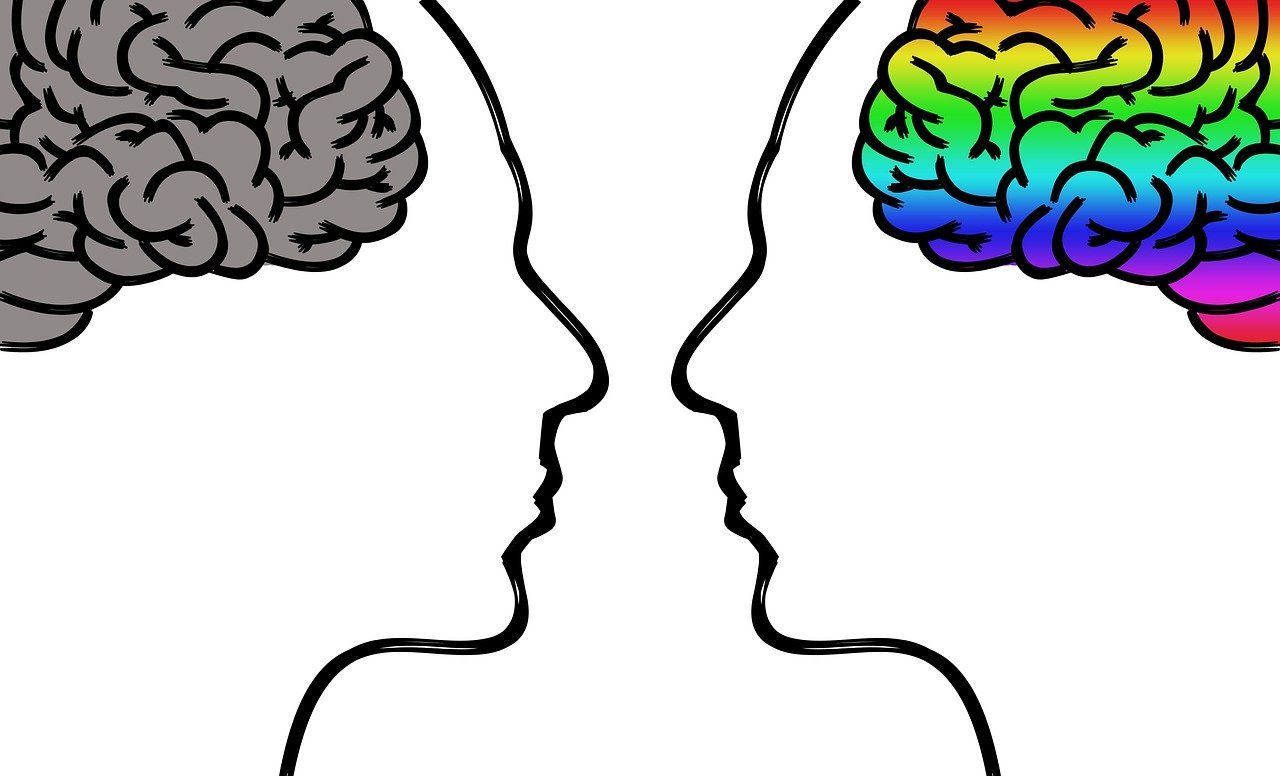
Blog
Thoughts Are Just Thoughts
Learning to create mental distance from unhelpful thoughts is a useful skill to practice and cultivate. The technical term for this skill is cognitive defusion, a core clinical process of acceptance and commitment therapy (ACT).
Coping With Long COVID
According to the National Institutes of Health (NIH), most people fully recover from COVID-19 within days or weeks of being infected. Yet, some people have symptoms that last for weeks, months, or even years, and in some cases, a person may initially recover and then have symptoms reappear.
Intuitive Eating
We are approaching the holiday season which is a time of year that often includes a lot of food and eating. Developing a helpful relationship with food involves practicing balance and flexibility in eating and intuitive eating can be a part of this practice…
Are You Preoccupied With Pain?
Pain can easily occupy most of our thoughts and attention. When pain is highly uncomfortable, it can be challenging to focus on anything else. This can lead to a vicious cycle as the more you ruminate on or catastrophize pain (imagining the worst possible outcome), the worse it tends to feel.
The Health Benefits of Having a Pet
Ask any animal lover, and they will likely tell you that having a pet benefits their health and well-being. Nonetheless, the benefits of pets are more than just anecdotal. Pets positively impact health including decreasing cortisol, lowering blood pressure, reducing loneliness, and improving mood.
Cognitive Behavior Therapy for Insomnia
Cognitive Behavior Therapy for Insomnia (CBT-I) is a short, structured, evidence-based approach to treating sleep difficulty and insomnia. CBT-I focuses on the connection between our, thoughts, behaviors, and sleep.
Increasing Psychological Flexibility Through Mindfulness
We all get cognitively, emotionally, or behaviorally inflexible and stuck. We fixate on the same thoughts over and over again, feel trapped and overwhelmed by certain emotions, or constantly repeat the same behaviors.
Couples Therapy: Strengthening Relationships
Couples therapy focuses on the relationship itself as the primary client, addressing patterns of interaction between partners to strengthen their bond.
Adolescent Therapy
Adolescent therapy at CBT Denver addresses the needs of adolescents through CBT, DBT and social skills training. Parents of adolescents can learn effective ways of providing support and striking a balance between offering support while respecting your teen’s sense of independence.
How to Build Body Acceptance
It is natural to dislike things about our bodies and focus on these perceived inadequacies along with our limitations and all we think we cannot do. Sometimes our thoughts may be somewhat accurate. For example, chronic pain, or an injury, may limit how far you can walk or run. Yet, self-judgmental thoughts are rarely helpful or flexible.
Helping Your Socially Anxious Child with Back to School
Back to school can bring up anxiety for kids. For children and teens with social anxiety, back to school can be particularly challenging. Social anxiety disorder in kids is characterized by fear of social situations with peers in which they may be judged negatively and in which their peers may notice their anxiety leading to rejection, embarrassment or other negative outcomes.
End of Summer Blues
For many of us, summer is an enjoyable time of year that we look forward to and relish. Warm and sunny weather, longer days, more time spent outside, and perhaps feeling more carefree. So, it is understandable that we can feel down when summer ends, what is sometimes called the end-of-summer blues.
Cognitive Behavioral Therapy vs. Dialectical Behavior Therapy
A central component of our therapeutic approach at CBT Denver is Cognitive Behavioral Therapy (CBT). CBT is a practical, goal-oriented, and evidence-based method of therapy. It focuses on how changing unhelpful thoughts and/or behaviors can decrease mood symptoms and improve daily functioning. Dialectical Behavior Therapy (DBT) is a specific type of CBT. Is CBT more effective than DBT or vice versa?
Task Management: Tendencies and Traps
What you typically do is not necessarily the most helpful. We tend to approach the daily tasks of life in set ways. For example, perhaps you like to complete tasks as soon as possible or procrastinate and push tasks off.
How Saying 'No' Enhances Authenticity and Well-Being
Most of us have a lot of practice saying “yes” to things. To take on more and more. This can be related to a variety of factors including people pleasing, concern over the perceptions of others and fear of letting others down, and believing we need to prove our worth. Thus, it is often not easy to say “no.”
CBT Denver: Committed to Providing Evidence-Based Therapy
CBT Denver therapists are dedicated to providing quality, evidence-based treatments. Our center focuses on compassionate, collaborative, and effective treatment approaches.
What is Social Anxiety Disorder
Being judged, negatively evaluated, or rejected by others can be unpleasant and hurtful. People with social anxiety disorder experience difficulties in relationship and daily functioning due anxiety that they will be rejected by others.
Why You Should Say "And," Not "But"
Dialectical behavior therapy (DBT) is a type of cognitive behavior therapy that focuses on how to live in the present moment, regulate emotions, develop healthy relationships, and cope with distress. The D in DBT, dialectical, means the existence of opposites and how both can be true.
Cultivating Empathy Through Pain
Empathy, the ability to imagine and understand another person's perspective, is a beneficial trait to cultivate. It is natural to be focused on our perspectives, thoughts, and feelings and be closed off from the perspectives of others, particularly when they differ from our own. Experiencing physical pain can increase our awareness of our sorrow and other people's.
The Power of Relationships
Social connections can lower anxiety and depression, boost immunity, and may even lengthen lifespan. The reverse is also true. Loneliness can decrease a sense of contentment, disrupt sleep, increase cortisol (a stress hormone), and elevate blood pressure. Positive relationships are a primary contributor to health, happiness, and longevity.




















